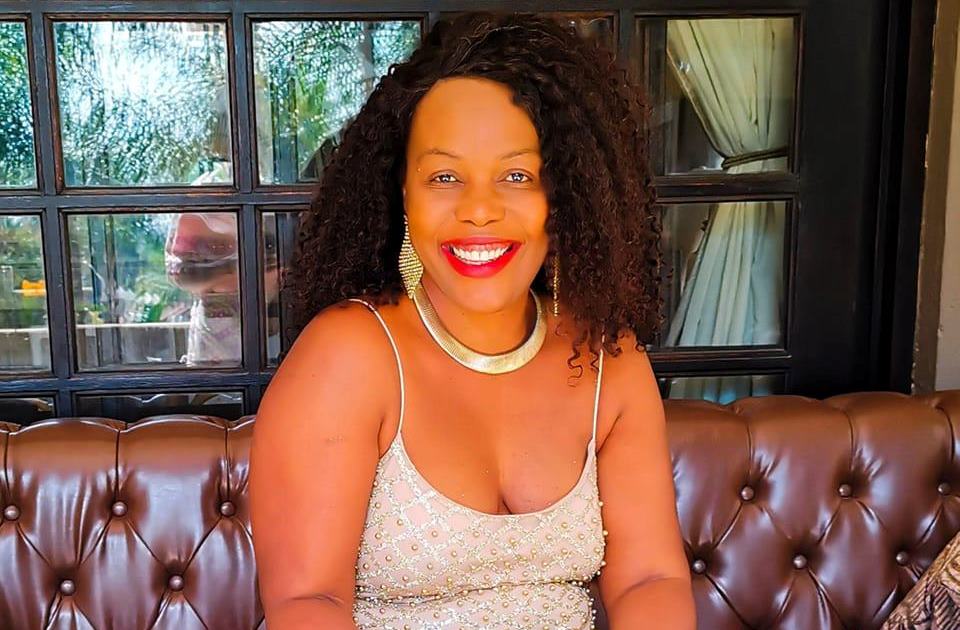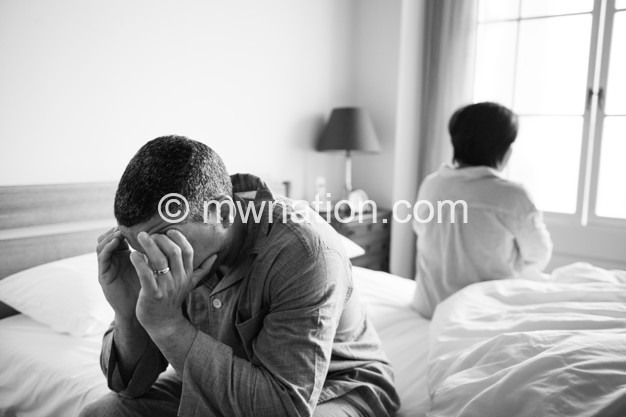Monica Kumwenda: Founded the Fight Club: Healing together
Mental health survivor Monica Kumwenda is a public health expert, residing and working in South Africa.
She also raises awareness on emotional and narcissistic abuse, based on her personal experience.

Monica established the Fight Club: Healing together— a Facebook page born from a position of both personal pain and strength.
She uses this forum for her cause. Her inspiration came from the ‘me too’ messages she got after publicly sharing her story on Facebook.
On the Fight Club Facebook page, Monica talks about mental health and other hardships of life.
In creating and building the page, she was also by her sister Sarah’s side, who equally shares her story of pain on the page as a sickle cell warrior.
“When I started sharing my story, I did not anticipate it would touch many lives. I went through emotional pain in my marriage since 2017 until I decided to leave at a very critical time when I had just had my third baby.
“I think what drew the response I got is the complexity of my story and the traumas I survived. My marriage ended because of betrayals, when my baby was only three weeks old, with a fresh Caesarean-section wound, in a foreign land,” she explained.
While licking her emotional wounds and at the same time navigating life as a single mother, she also broke a leg and went through multiple surgeries.
Monica suffered from a mental breakdown and was diagnosed with major depressive disorder.
Her traumas caused clinical depression and anxiety, but for a while, she couldn’t talk about the struggles.
“So, I shared the little I could with my family, close friends and the church. I could not share with anyone out of shame, for fear of being blamed, laughed at and what people will say,” she said.
As she continued on the healing process, she sought the help of a psychiatrist and was hospitalised in a psychiatric ward.
She explained: “I felt better with the treatment. As I healed, I felt the need to talk about the things that people don’t talk about. So, I started by sharing some things on my WhatsApp status and it helped some people who related to my pain.
“In fact, one person asked me to refer her to my psychiatrist and she received help. Her healing journey started because of what I shared on my status. That moved me, but it took a lot of reflection and prayer for me to start sharing my story to the larger public on social media.”
However, not everyone received this initiative positively.
There was a backlash from certain quarters who felt she was sharing too much.
It took strength and resilience for Monica to continue having difficult conversations using her experience.
The mother of three observed that the decision came with vulnerability and healing.
Monica described Fight Club as an unfamiliar and uncomfortable path, but fulfilling.
“There are people who frown upon what I talk about, but that doesn’t stop me, because I know there are others who look forward to reading my posts every day for inspiration,” she said.
Thus far, Fight Club has been structured into a lay mental health programme, primarily focusing on supporting women who are going through pain, to navigate and access mental health care.
Also, as a way of accommodating men in the initiative, the founder has discussed a partnership with RAFA Associates, which provides tailored and confidential psycho-social support for men through counselling.
All men who need support are put through a referral system into this programme.
Acknowledging that she could not do it all by herself, she has a team of psychologists, counsellors/ therapists, survivors, financial advisors and personal development coaches to serve the tribe of women looking for healing.
The team of 15 women make-up the secretariat for the Fight Club support group.
“All of us have day jobs, but we made a choice to use our free time to support other women who are struggling on various levels. The private support group as well as the Fight Club public page continue to evolve, based on the feedback we receive from our members and followers,” Monica explained.
Undoubtedly, talking about pain alone is not enough, so they are now setting up a trust, considering most women’s economic hardships which expose them to risky situations.
“Many of us on the team have had to dig into our pockets to support those who need it, but it is not sustainable in the long term. We are looking at building partnerships with existing support structures and we hope this trust will help us support the women better,” she said.
Every day, three to five women get supported through the Fight Club WhatsApp groups.
The groups include divorce and separation support group, infertility support group, chronic illnesses support group, disabilities and caregivers support group; mental health support group and single motherhood support group.
Monica, who is also a PhD candidate at the University of Witwatersrand in the Public Health Multidisciplinary PhD Programme, is the second born in a family of six children.
Her day job focuses on HIV research and development, with a specific focus on development of HIV prevention drugs and products for women in Sub-Saharan Africa.
She grew up in Mzuzu where she and her siblings were raised by their mother following their father’s demise over 20 years ago.
“I was raised by one very strong and zealous woman— Rank Kumwenda. When my father died, I saw my mother pick up her shattered pieces and carry all six of us on her shoulders single-handedly. I am not even half the person my mother is, but I owe the survivor I am today to the lessons she taught me.
“She didn’t tell me how to be strong; she showed me strength, resilience and determination. I believe this is what shaped me into the woman I am today. Thirteen years ago, I became a mother myself. I have birthed three amazing babies and I hope that I can be that woman to them,” she said.
Apart from driving the Fight Club movement, Monica also owns a fashion and beauty business in Malawi —Cara Fashions.
She runs a family business registered in South Africa under the name Tumoji Afrika through which she aims to promote Malawian fashion designs in South Africa.






One Comment